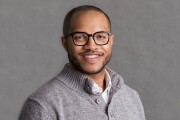Financial inclusion is a key factor in helping underserved people accumulate wealth and has the power to narrow gender and racial gaps.
That’s the take-home message from a panel discussion at the FINRA’s Diversity Leadership Summit.

“The No. 1 indicator of economic well-being, besides health itself, is wealth — having the ability to accumulate assets so that one can have economic security and be self-determined in their life — that might be the most paramount indicator of financial inclusion,” said Darrick Hamilton, professor of economics and urban policy at The New School.
Geraldine Walsh, president of FINRA’s Investor Education Foundation, also took part in the discussion in which Ritta McLaughlin, director of investor education and community outreach at the FINRA Investor Education Foundation, moderated.
Lack of access to wealth is a perpetuating cycle that keeps people from participating in the market and from financial inclusion, the panelists said.
“It's as simple as ‘wealth begets more wealth.’ I'm using hyperbole, but that one critical ingredient is wealth. If you have no wealth, then inequality is basically locked in,” Hamilton said. “If you have no power and resources in that transaction, you are at the whim of a charity or you're vulnerable to exploitation.”
Walsh added that the deck can be stacked against those trying to change their own wealth situations.

“There's so many ways to run afoul of the rules, and it's like there's this bizarre codebook that you have to know in order to be able to survive and thrive. All of that leads to an inability to be able to accumulate assets,” she said.
In terms of policy solutions, Hamilton said baby bonds, child trust accounts that ensure access to capital as a young adult, have gotten a lot of attention.
“These policies are aimed at ensuring that people have a base level of resources so that they're not vulnerable to the whims of charity or being exploited,” he said. “Setting up a base level of resources so that people can engage is the right way. … It ensures everybody has a birthright to capital when they become a young adult, to start engaging the financial system.”
Walsh said the wage gap, as well as lack of childcare and transportation, is a barrier to accumulating assets.
“Being able to address those kinds of barriers at the provider level is something that can make a big difference,” Walsh said.
Financial inclusion should be a goal because “it's the right thing to do,” Hamilton said.
“It's immoral if people have no pathways for economic mobility. That in and of itself is valuable and useful. We can have other reasons as well. When people are vibrant and thriving, that leads to a dynamic economy writ large,” he said.
Financial institutions should focus on how to change behavior, Walsh said, pointing to a FINRA collaboration with United Way Worldwide and other nonprofit organizations that prioritizes financial wellness at work.
“It's making available safe and affordable loans for people who don't have credit scores or who have pretty bad credit scores but tying their ability to get access to a loan — an emergency loan of $2,000 or $1,000 — they can get it straight from their employer through an arrangement with a credit union. That allows them not only to weather the financial storm that they're in and to get through the emergency, but to engage in saving behavior that then can lead to building their credit score,” Walsh said. “We should be experimenting more, and we should really be thinking about how financial institutions can use their corporate social responsibility and banks using their obligations under the CRA, to think about how they can give back to their communities in creative ways that really fosters inclusivity and fosters true behavior changing and saving.”
Well resourced corporations should develop proof of process and do the “right thing because it is the right thing,” Hamilton said.
“There has to be a role of the public sector, if we're going to have a moral economy, where people can truly be self-determining,” he said. “Take big chances, do things that governments — because of the political process or whatever — might not be doing, to demonstrate something that it can be scaled up but ultimately built into our political economy in a way that ensures that people have access, irrespective of decisions that a corporation may or may not make.”






